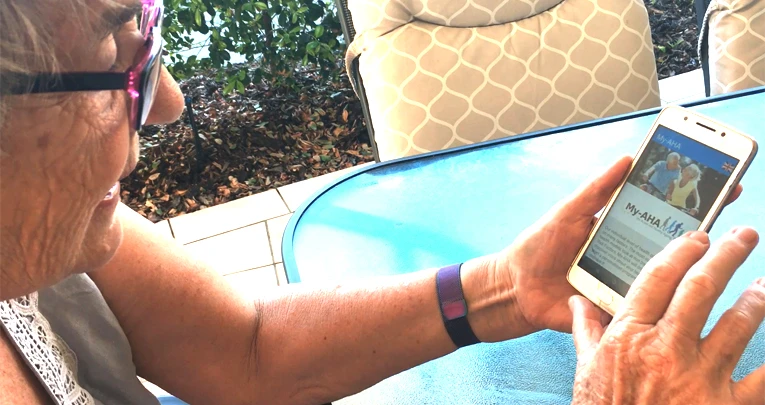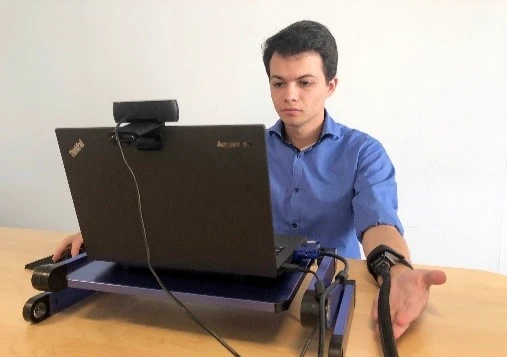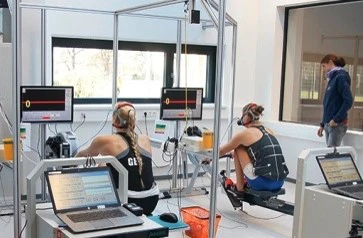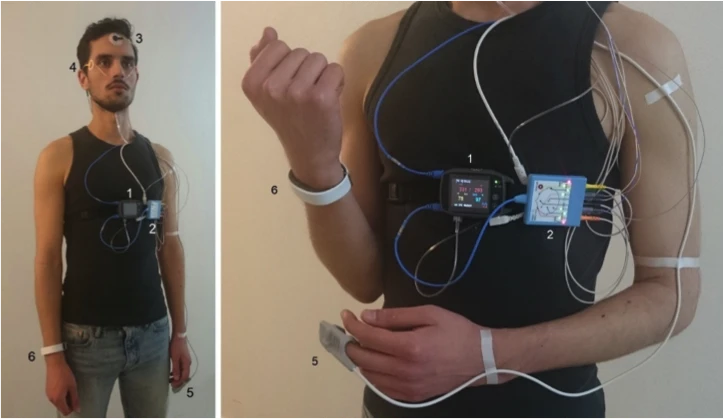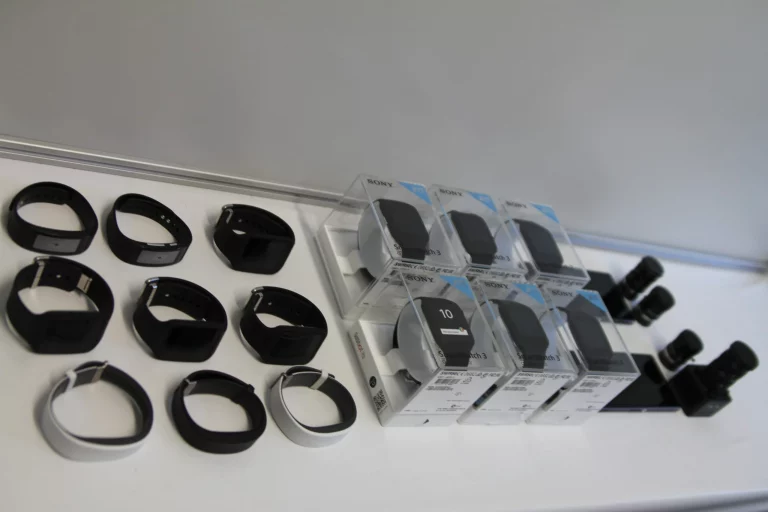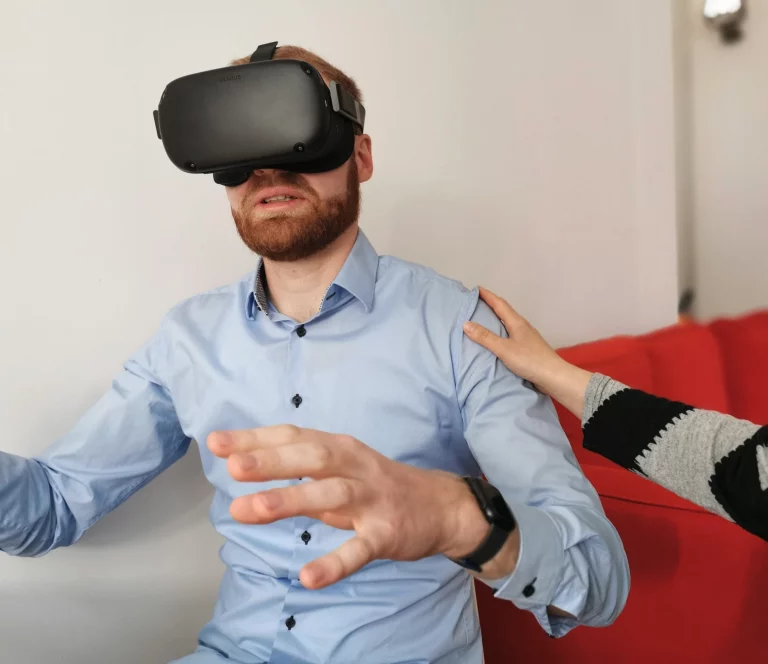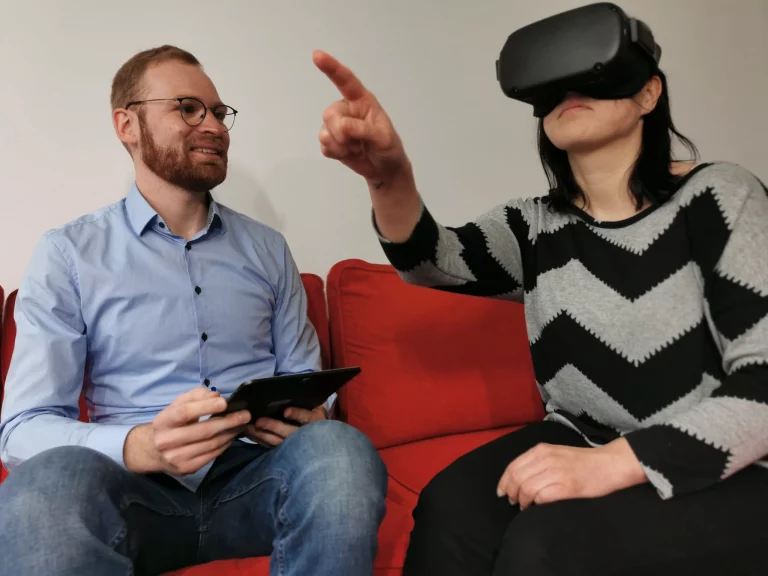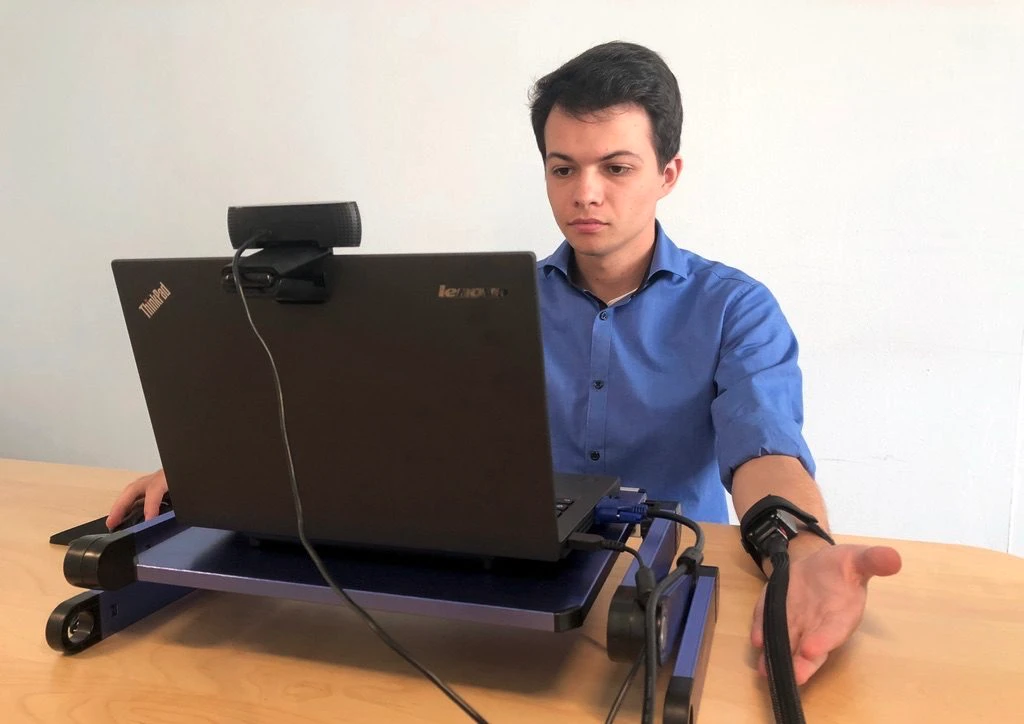
Multimodal Platform for Pain Monitoring in Physiotherapy
BMBF Funded Project PainMonit


Our Approach
The core objective of the pain monitoring tool is to support therapists in selecting therapeutic exercises at an appropriate intensity level to ensure optimal treatment progress. Pain perception plays a critical role in a wide range of medical applications. In physiotherapy, for example, pain – particularly the individual pain threshold – not only influences the outcome of treatment but also fundamentally determines the structure and progression of therapeutic exercises from the outset.
Traditionally, pain is assessed through self-report questionnaires. While effective in many cases, this method is unsuitable for patients who are unable to communicate their pain reliably or at all. To address this limitation, alternative approaches are being explored that enable the evaluation of pain through physiological and audiovisual indicators. These include parameters such as facial expressions, vocal signals, and biosignals (e.g., heart rate variability or skin conductance), offering a more objective and continuous assessment of the patient’s pain experience.
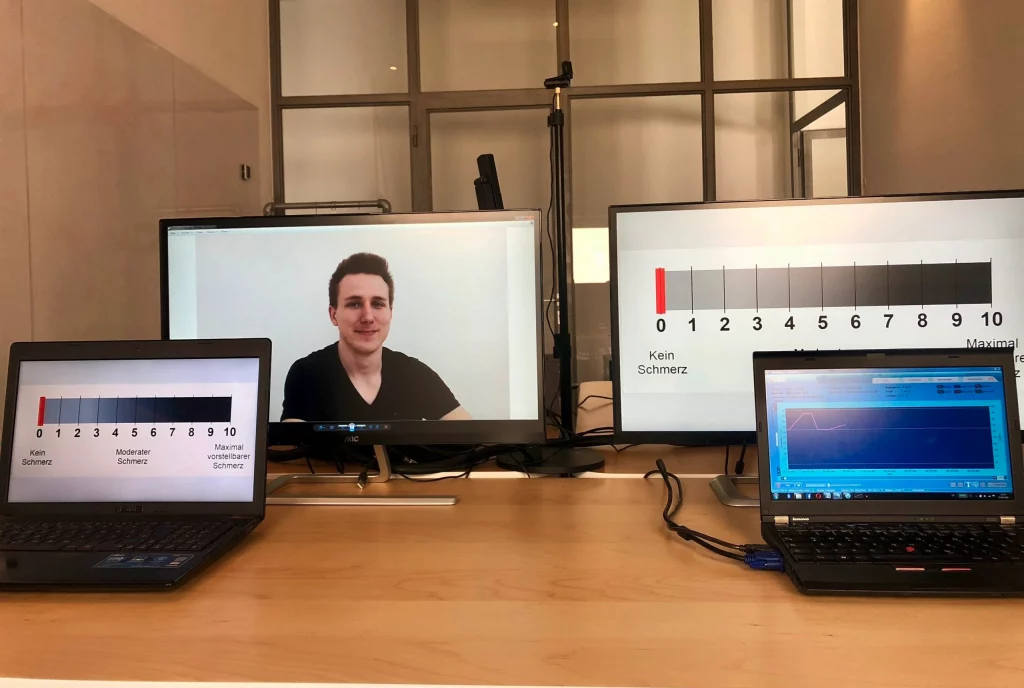
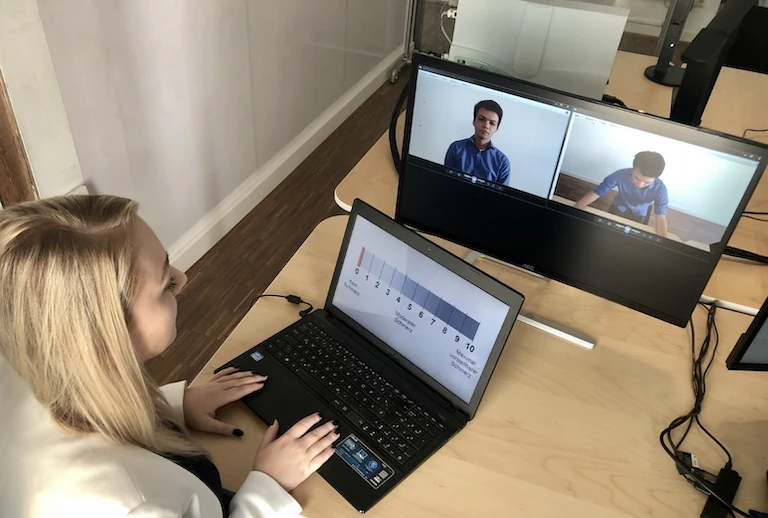
Experimental setup: Exmanier’s point of view
About the Project
PainMonit aims to develop a sensor-based tool for the comprehensive and objective monitoring of pain. Pain-related data are captured through two central modules and processed via an integrated analysis platform.
The first module focuses on behavioral pain measurement by developing a system that records and analyzes movement behavior using wearable sensors. This module enables the specification of pain-related motor patterns during physiotherapeutic activities.
The second module centers on video-based pain assessment and involves the creation of an automated camera system for real-time pain recognition. It captures facial micro-expressions and head movement indicators to detect signs of discomfort or pain during the performance of therapeutic exercises.
By integrating data from both modules, PainMonit aims to provide a multimodal, non-invasive monitoring solution that supports personalized therapy planning and enhances treatment precision – particularly for patients who have difficulty verbalizing their pain experience.
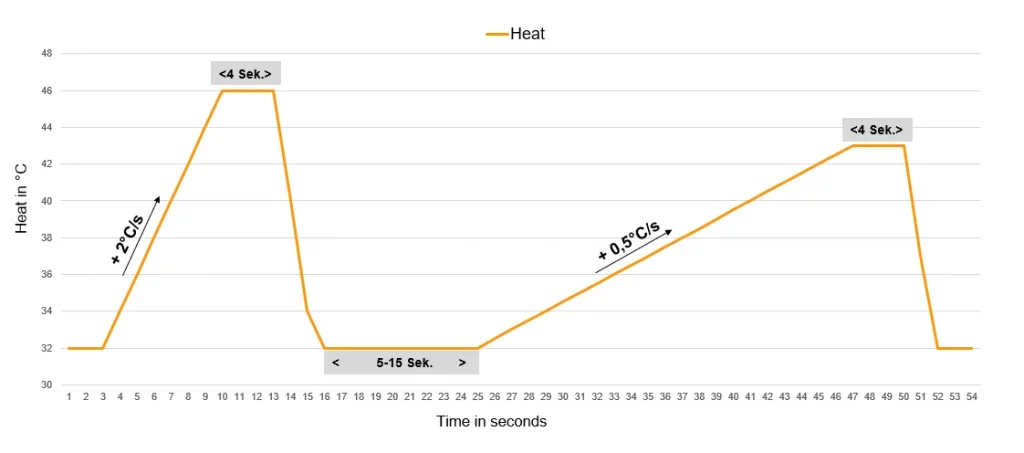
Overview Heat Stimuli – Exemplary Temperature Curve with Alternating Stimuli and Pauses
Work Packages, Insights and Outcomes
Within the PainMonit project, IXP is responsible for developing a software module that monitors pain based on facial expression– and head movement–related indicators. To support the training of machine learning and deep learning models, a dedicated video database with annotated pain states will be created as a foundational resource.
In addition to the technical development, IXP oversees the assessment of both user and system requirements for the software module. It also ensures the integration of ELSI (Ethical, Legal, and Social Implications) design principles throughout the development process.
Furthermore, IXP leads the final system evaluation of the multimodal PainMonit demonstrator. This includes verifying the system’s reliability, usability, user acceptance, and classification accuracy in real-world therapeutic settings, with the overarching goal of delivering a robust, ethically grounded, and user-centered pain monitoring solution.
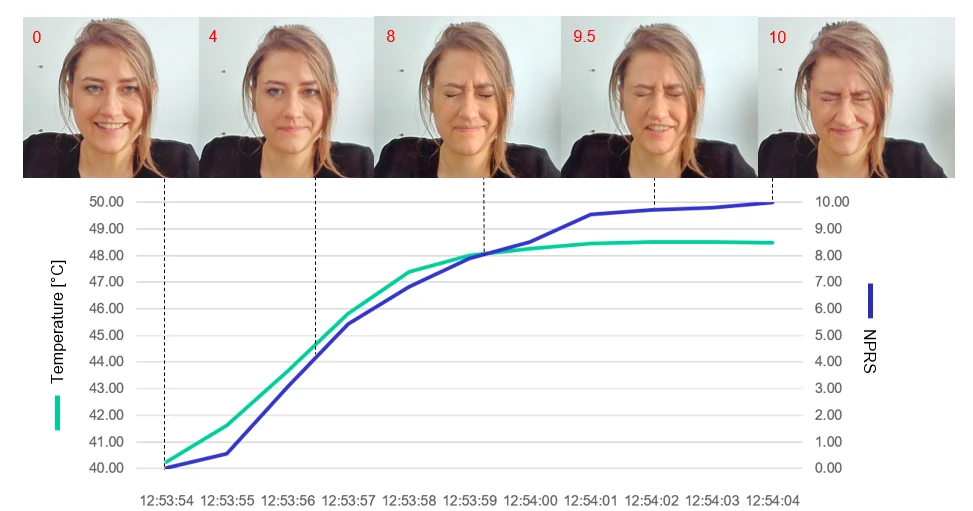
Exemplary course of facial expressions during the different pain states
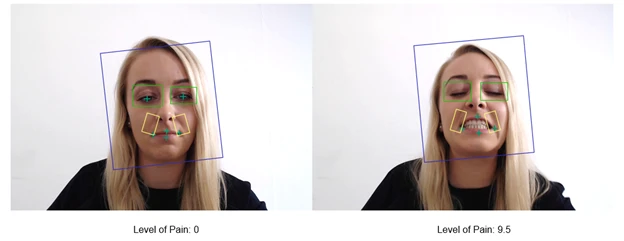
Face and Facial Landmarks Detection. Regions of Interest: Eye Detection (Eye Closing), Mouth Points (Distances) and Nasolabial Folds



Successful Projects
Development of a screening and support portal as an extensive psycho-social diagnostic mode for refugees
Features extraction of auditory, visual, and physiological data for diagnosis system of affective disorders
A holistic view of interrelated frailties to reduce frailty risk by improving overall well-being
Feedback-assisted rehabilitation after surgery of the anterior cruciate ligament
A contribution of German elite sport to smart health promotion
Market overview, legal and technical requirement analysis, living lab study, and implementation of corporate health management programs
Desktop and virtual reality-supported module variants to bridge waiting times between therapy sessions and enrich ambulant therapy
Support of acute therapy and relapse prevention in the deep psychological treatment



